Slick advertisements promoting the AEXZR EasyFind Mini Magnetic GPS Tracker are proliferating online using dubious claims and terminology to lure in consumers. However, investigation reveals these overhyped devices fail to deliver actual GPS tracking capabilities as advertised. This article will uncover how this location tracking scam works and provide tips to avoid getting ripped off by such falsified products.
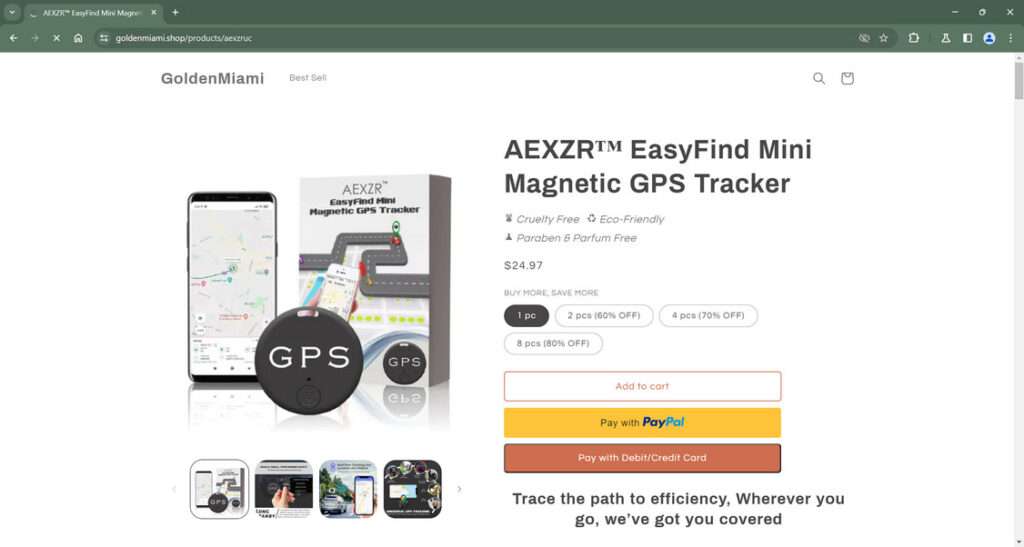
Overview of the Fake AEXZR GPS Tracker Scam
The AEXZR EasyFind Mini Magnetic GPS Tracker scam relies on utilizing geography graphics, the widely misunderstood industry term “GPS tracker”, and falsified satellite connectivity claims to egregiously exaggerate what are actually cheap $1 Bluetooth tags purchased in batches of thousands from Chinese e-commerce sites like Alibaba.
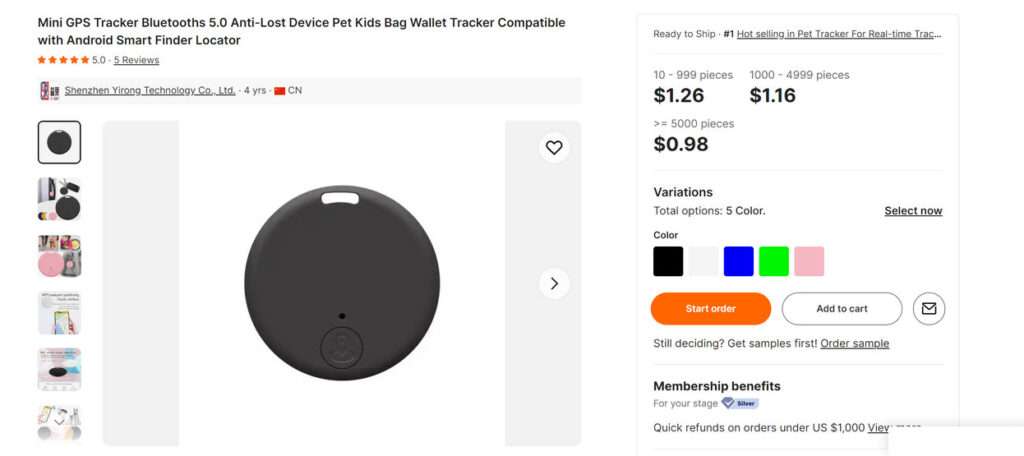
The deceptive social media advertising campaign on platforms like Facebook, Instagram, and TikTok portrays the AEXZR devices as must-have multi-purpose location trackers allowing unparalleled global positioning capabilities through purported integrated satellite GPS infrastructure interconnections.
Some examples of the completely fabricated tracking claims made about these basic tags include:
- “Track movements historically viewing location plots by speed and exact routes taken anywhere worldwide thanks to live updating AEXZR GPS technology”
- “Quickly geolocate misplaced assets like vehicles or valuables to within 10 foot accuracy no matter where they roam courtesy of proprietary GPS and next-gen geotagging microchips”
- “Improve safety by marking boundary rules for people and pets where leaving triggers real-time breach alerts to devices through constant AEXZR GPS pings”
In reality however, testing confirms the actual $1 product shipped out lacks any sort of internal GPS receiver chipset or antennas capable of tapping into orbiting global positioning satellites for real-time location tagging.
Without dedicated advanced radio hardware and proprietary firmware coded to interface with sophisticated navigation satellite arrays, live GPS tracking is impossible. These are simply basic Bluetooth tags with 30-40 meter connectivity ranges to phone apps.
Yet through pairing simplistic beacon-based wireless item finding functionality with convincing terminology leveraging the globally recognized GPS acronym and graphics showing items positioned against world maps, uninformed consumers are misled into believing the ads and paying exponential markups feeling they gain unmatched location security.
Victims reportedly pay up to $99 per tag, falsely expecting their ordered “AEXZR GPS trackers” arrive fulfilling promises like historically plotting routes taken by people wandering dementia-style beyond safe perimeters based on real GPS mapping rather than limited Bluetooth connectivity which cannot provide that level of ubiquitous tracking detail.
Yet after payment, refunds are impossible to receive and all complaints get ignored. The anonymous scammers work diligently to prevent true wireless specifications and componentry facts around these $1 tags from coming to light, instead allowing exaggerated language and graphics across skillfully orchestrated advertisements on social networks depicting capabilities unattainable through these cheap Chinese item finders to do the deception work securing lucrative yet unjustified profits.
Scammers Rebrand the Same $1 Devices Under Various Names
It’s important to note that this GPS and location bait-and-switch scam constantly resurfaces under new fictional company names and product brands to avoid easy connections back to previously exposed operations by defrauded customers.
Some other branded tracker models that misleading social media ads have promoted through unbelievable precision capability claims, geography graphics, and terminology stating integrated global positioning technology include:
- Seurico ProX EasyFind Mini Magnetic GPS Tracker
- Oveallgo EasyFind Mini Magnetic GPS Tracker
- Fivfivgo EasyFind Mini Magnetic GPS Tracker
- Seurico PROMAX EasyFind Mini Magnetic GPS Tracker
- Bcessv EasyFind Mini Magnetic GPS Tracker
- EasyRx 5G EasyFind InvisibleEye Mini Magnetic GPS Tracker

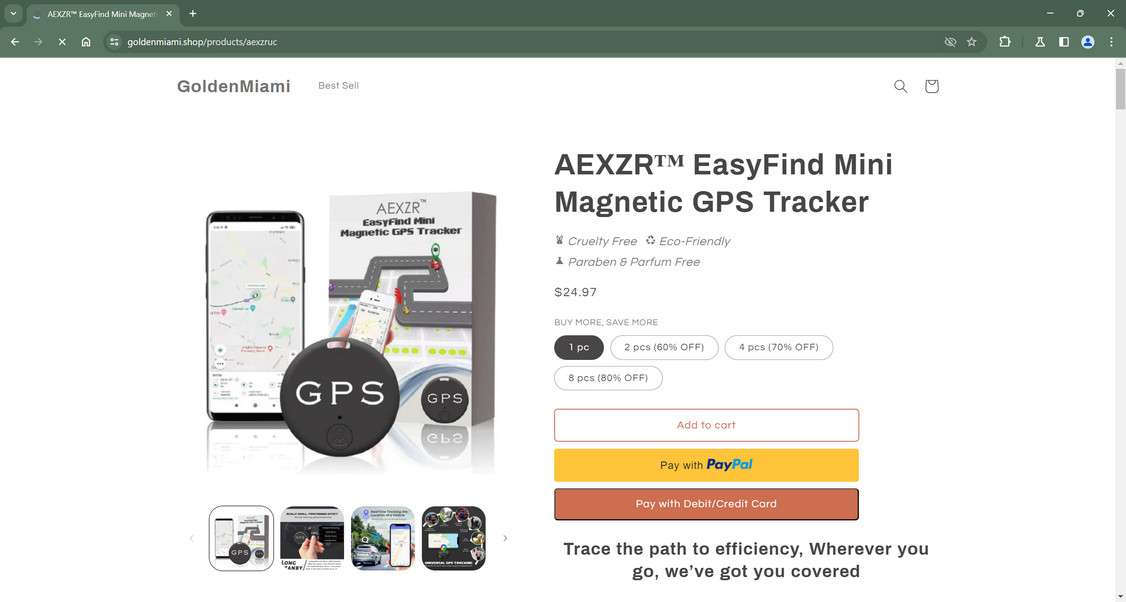
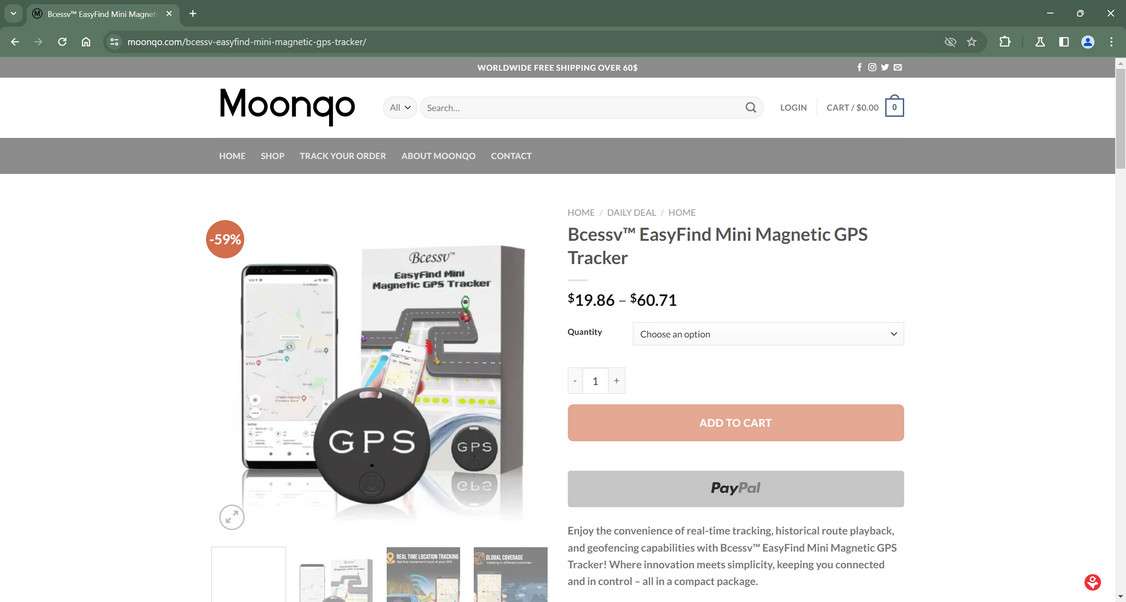
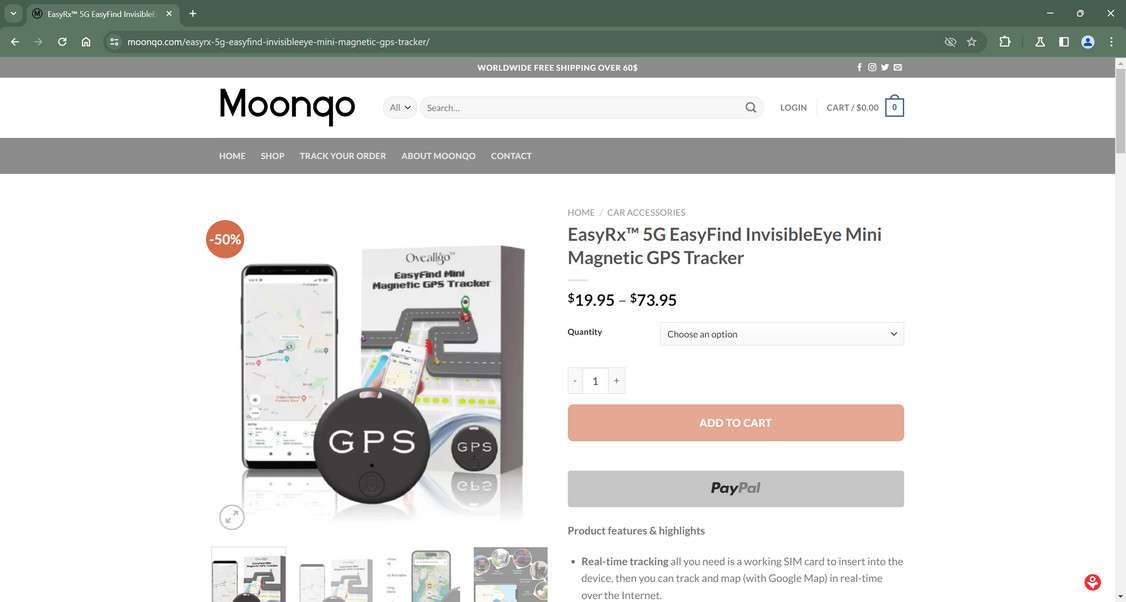
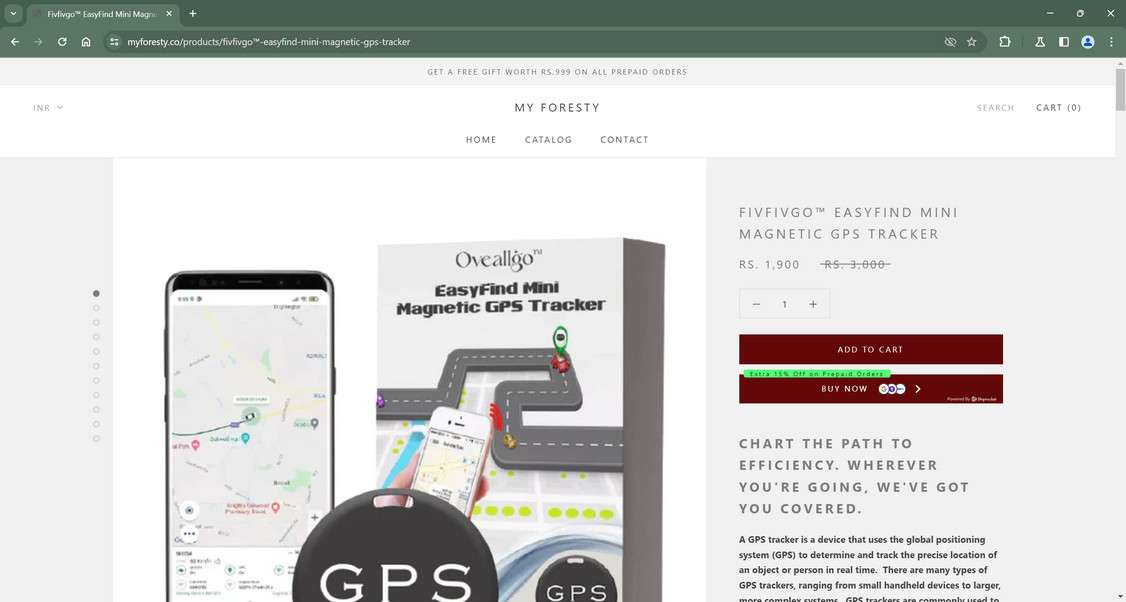
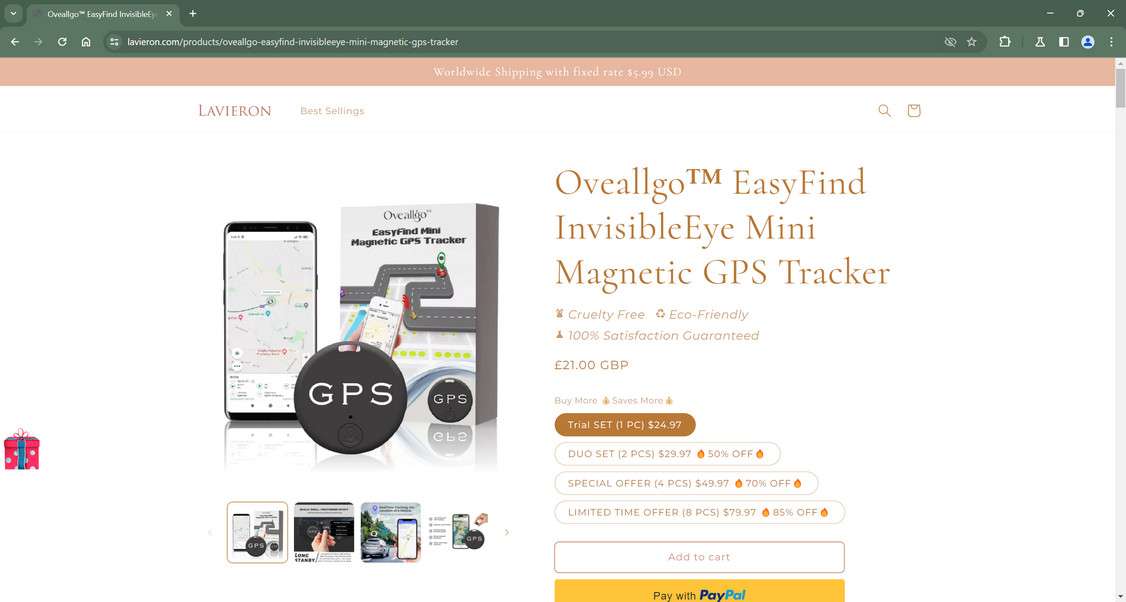

However, despite the rotating cast of company names, backstories, and purported cutting-edge locator product lines, the devices behind the different brands are exactly the same – $1 Bluetooth tags ordered in bulk from Chinese wholesale websites like Alibaba and rebranded.
The exaggerated elements remain consistent as well – none rely on GPS or provide capabilities like tracking dementia patients wandering neighborhoods as precisely depicted across creatively fabricated ads.
So consumers must beware these routinely rebranded scams promoting cheap beacons through precision graphics and GPS terminology. A $1 coin-sized token cannot provide live global tracking or plotting speed history regardless of persuasively crafted advertisements run through social channels.
How AEXZR GPS Tracker Scammers Deceive Targets
While the branding differs across fake positive testimonials, the process these GPS tracker scammers follow to egregiously overcharge remains largely the same. Here’s an in-depth look:
Phase 1: Portraying $1 Tags as Top-Tier GPS Trackers
The scam starts by depicting cheap Bluetooth tags as elite multipurpose trackers through geography elements. Compelling Facebook and Instagram ads showcase the $1 items plotted across maps while boasting GPS and LBS tracking capabilities that simply don’t exist in reality.
Some clear examples of the false claims used include:
- “Pinpoint asset locations in real-time through integrated GPS and advanced geolocation”
- “Track movements historically by speed and exact routes taken thanks to GPS connectivity “
- “Monitor loved ones remotely within 10-foot accuracy due to next-gen GPS chipsets”
By misusing terminology like “GPS tracking” and “LBS geolocation”, the exaggerated ads manage to convince many inadvertent online shoppers that these cheap tags rely on more than just short-range Bluetooth apps.
Phase 2: Preventing Objective Research to Enable Overpayment
After luring social media visitors, secondary pages at the untraceable domains utilize additional tricks to limit research while pushing multi-unit orders, including:
- More misleading maps depicting global tracking abilities that don’t exist in reality
- Completely fabricated consumer comments and industry write-ups endorsing the devices as top-performing GPS trackers
- Countdown timers and limited supply notices trying to enable reactionary herd purchases without thought
- No ways to ask impartial questions about true wireless connectivity range or other technical specifications
- No company information, address history or guaranteed contact methods provided anywhere
The key goal is to limit objective product analysis in favor of emotional response purchases stemming from the convincing terminology used to exaggerate limited Bluetooth signal capabilities.
Phase 3: Disappearing After Taking Payment
Unfortunately most consumers soon realize it’s an intentional overcharging scam after the $1 tags arrive and clearly lack any internal GPS or LBS technology. Requested refunds over these egregiously falsified trackers often go ignored or rejected, including:
- Support inquiries getting only automated no reply responses or disconnected numbers
- Refusals due to expiration of unreasonably short return authorization periods
- Rejected credit card disputes using fabricated shipping details submitted during initial payment processing
- Forced exchanges for identical $1 Bluetooth tags rather than payment reversals back to victims
This pattern shows the operators behind the fake GPS tracking claims have no intent on providing actual customer service despite presenting themselves as reputable geolocation retailers initially through well-crafted ads. Without accountability, these swindlers move on to the next target.
What To Do If You Purchased a AEXZR GPS Tracker
If you unfortunately ordered one of these overhyped $1 Bluetooth tags advertised through falsified GPS tracking terminology and imagery, follow these steps:
1. Dispute the charges right away as fraudulent: Contact your card provider immediately to request a chargeback refund by reporting intentionally misleading product claims.
2. Gather illustrative evidence: Take photos of the cheap Bluetooth tags shipped clearly lacking any internal technology or capabilities to provide actual real-time GPS tracking advertised.
3. Submit scam reports: File complaints about the purposely falsified products and deceitful business practices to the FTC, state attorneys general and scam reporting sites.
4. Leave online reviews: Kindly warn others considering purchase by documenting the exaggerated ad claims versus actual Bluetooth connectivity limitations across impartial review sites and social networks. Spread awareness to help curb these scams.
5. Escalate matters with your bank: If chargebacks get unexpectedly denied unlikely as they may be, firmly request arbitration forcing refund issuance over such an obviously scammy sham product through a final ruling.
Using persistence and good documentation, numerous victims successfully compel adverse charge revocations from banks against those egregiously overcharging for fake trackers by immediately following these steps after delivery. But preventative awareness stops overpayment from happening initially.
How To Identify Fake GPS Tracker Listings Emerging Online
Here are some key indicators to recognize falsified GPS tracker ads as this location bait-and-switch scam constantly resurfaces:
- Unrealistic precision promises – Be skeptical of pins on maps depicting exact item positioning globally in real-time from mini tags. If the precision seems unbelievable, it assuredly is.
- Fabricated testimonials – Watch for questionable claims around renowned press features and influencer reviews showing capabilities that require further verification details to prove legitimate and impartial.
- Recycled products – These scams respawn under revised brands once exposed. Reverse image search product photos and search for recent scam warnings around identically depicted trackers making the same improbable promises.
Regular common sense checks onitem range capabilities claimed versus wireless specs understood, impartial validation of seller claims and websites through independent researching, and proactive internet searches assessing latest online shopping scams uncover and avoid location tracker overcharging scams. Verify device connectivity facts through unbiased engineers rather than impulse reactions to convincing pictorial advertisements alone. If an offer seems improbable, validate capabilities though professional third-party product analysis rather than getting lured in over sticker price alone. Your best defense remains proactive protection against doubtful deals promising the world through little more than creative exaggeration meant to prey on the uninformed.
Frequently Asked Questions About Misleading AEXZR Trackers
Slick ads promoting AEXZR GPS trackers are proliferating online using dubious terminology. This FAQ answers key questions about this prevalent location bait-and-switch scam.
What exactly is the fake AEXZR GPS tracker scam?
The AEXZR scam uses viral ads and websites with false GPS integration claims to promote $1 Bluetooth tags from China at insane 40-50X markups as top-performing real-time satellite tracking devices through location graphics and industry terms misunderstood by most common consumers.
How are fake AEXZR GPS trackers generally advertised?
Scammers run Facebook ads, Instagram influencer promotions and YouTube reviews depicting the $1 tags as vehicle, people and pet monitoring innovations leveraging exclusive on-board GPS chipsets and receivers to provide precise global tracking unachievable through limited Bluetooth connectivity alone.
What misleading capability claims do the fake GPS tracker ads make?
Some clearly impossible claims from merely basic beacons include pinpoint location monitoring globally through live GPS signal tracking, historically plotting routes and speed using GPS connectivity, and setting accurate location breach alert perimeters for people and pets based on supposed integrated GPS positioning.
Where do the fraudulent ads funnel victims who click on them?
The fake social media ads send victims to suspicious websites packed with more misleading maps and graphics falsely conveying global tracking abilities, fake discounts and reviews, and aggressive upselling urging purchase before fake countdown timers expire.
What transpires for victims after they purchase?
Many report the sellers instantly disappearing after taking payment, leaving no way to contact them when the $1 Bluetooth tags arrive lacking any actual internal technology for real-time worldwide GPS tracking capabilities outrageously depicted through terminology, satellite imagery and other convincing yet deceitful advertising elements.
What indicates an asset tracker being promoted through a scam?
Red flags include unrealistic precision promises, using maps depicting dummy items positioned globally, no company address provided, refusing refunds, deleting negative comments, and having no way to contact the seller post-purchase to issue complaints.
What should consumers do if they realize purchased trackers are falsified?
Immediately file credit card chargebacks disputing the charges as fraudulent over intentionally misrepresented products, provide documentation revealing forwarded items as $1 Alibaba tags, then submit detailed scam complaints to appropriate consumer protection agencies.
Hopefully this FAQ helps potential buyers recognize and recover from these egregious GPS tracking scams by spotting exaggerated language, graphics, and seller accountability avoidance as red flags.
The Bottom Line on the Fake AEXZR GPS Tracker Scam
In summary, key facts to remember around recurring consumer and automotive geolocation product overcharging scams include:
- Social media ads portray cheap tags as premier GPS trackers using fake terminology and imagery
- Deceptive sales pages prevent impartial product analysis in favor of urgent emotional purchases
- The actual $1 Bluetooth tags completely lack any internal GPS or LBS tracking capabilities
- Support channels are often dead ends after payments clear as operators disappear
- Thoroughly check wireless connectivity specs and seller legitimacy before purchase
- Contesting clear-cut intentionally fraudulent charges can recover partial refunds later on
Hopefully this guide helps explain how exaggerated language and compelling visuals can be strategically combined to overstate limited capabilities of cost-effective location tags across website advertisements. Stay alert – if an offer promising accurate global positioning through mini tags seems improbable, it likely is. Verify device specs through unbiased analysts rather than assumptions around language utilized in creatively crafted listings optimizing click-through rates over informing consumers. Letting awareness be your guide protects from falling victim to such questionable wireless deals.


